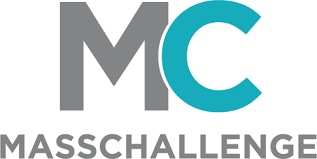electronic health records (EHRs)
See the following -
A 40-Year 'Conspiracy' at the VA
 Four decades ago, in 1977, a conspiracy began bubbling up from the basements of the vast network of hospitals belonging to the Veterans Administration. Across the country, software geeks and doctors were puzzling out how they could make medical care better with these new devices called personal computers. Working sometimes at night or in their spare time, they started to cobble together a system that helped doctors organize their prescriptions, their CAT scans and patient notes, and to share their experiences electronically to help improve care for veterans...
Four decades ago, in 1977, a conspiracy began bubbling up from the basements of the vast network of hospitals belonging to the Veterans Administration. Across the country, software geeks and doctors were puzzling out how they could make medical care better with these new devices called personal computers. Working sometimes at night or in their spare time, they started to cobble together a system that helped doctors organize their prescriptions, their CAT scans and patient notes, and to share their experiences electronically to help improve care for veterans...
- Login to post comments
A Bid to Make Massachussetts Hub of Digital Health World
 Political and business leaders on Thursday launched a partnership to create a digital health care hub in Massachusetts, in the hopes of cornering an estimated $32 billion market. The goal is to create an environment that will foster and attract companies which use information technology to improve health care, from electronic health records to wearable monitoring devices to software that tracks and crunches huge amounts of patient data.
Political and business leaders on Thursday launched a partnership to create a digital health care hub in Massachusetts, in the hopes of cornering an estimated $32 billion market. The goal is to create an environment that will foster and attract companies which use information technology to improve health care, from electronic health records to wearable monitoring devices to software that tracks and crunches huge amounts of patient data.
- Login to post comments
A Chat with CommonWell’s Executive Director: Interoperability’s Next Steps, Data Blocking, and Epic
 It’s been a little over three years since the CommonWell Health Alliance, an industry trade group made up of many of the largest electronic health record (EHR) systems vendors and other health IT companies, formed at the Healthcare Information and Management Systems Society (HIMSS) annual conference with the goal to greatly enhance health data exchange. And, it’s been a little over a year since the Alliance tapped Jitin Asnaani as its founding executive director...
It’s been a little over three years since the CommonWell Health Alliance, an industry trade group made up of many of the largest electronic health record (EHR) systems vendors and other health IT companies, formed at the Healthcare Information and Management Systems Society (HIMSS) annual conference with the goal to greatly enhance health data exchange. And, it’s been a little over a year since the Alliance tapped Jitin Asnaani as its founding executive director...
- Login to post comments
A Day In The Life Of A Primary Care Doctor
A harried pediatrician tells her story. Read More »
- Login to post comments
A Deeper Look at the Financial Impact of Cyber Attacks
 As large-scale instances of data theft — including theft of credit card records and personally identifiable information (PII) — are becoming more frequent, corporate executives and financial leaders are giving greater attention to the “cost” of cyber breaches. Are they looking at the breach, which typically categorizes data theft, or are they addressing “cost” as it relates to the entirety of the impact of a cyber incident to the enterprise?
As large-scale instances of data theft — including theft of credit card records and personally identifiable information (PII) — are becoming more frequent, corporate executives and financial leaders are giving greater attention to the “cost” of cyber breaches. Are they looking at the breach, which typically categorizes data theft, or are they addressing “cost” as it relates to the entirety of the impact of a cyber incident to the enterprise?
- Login to post comments
A Doctor's Declaration Of Independence
It's time to defy health-care mandates issued by bureaucrats not in the healing profession.
- Login to post comments
A Health Hack Wake-Up Call
Hospitals went digital almost overnight, but they neglected to prioritize patient data protection. U.S. hospitals appear to be under a new type of IT hacking attack: crypto-ransomware. Hackers have changed their approach and instead of stealing patient data, they are now locking down the computer systems of hospitals and asking for a ransom, in bitcoin, in order to allow hospitals to have access to their own computers...
- Login to post comments
A Hologram Might Be Worth A Million Numbers
I saw a fascinating article about how Fidelity, through their research arm Fidelity Labs, has released a virtual reality tool to portray financial information in a more visual manner -- not even using numbers. I immediately thought about how this approach could apply to health care...
- Login to post comments
A Layer Above It All: Healtheway’s Value Prop
Now that NwHIN has been spun-out into the public-private entity Healtheway one has to wonder exactly what value they can deliver to market that will sustain them as they attempt to ween themselves from the federal spigot. Healtheway has no lack of challenges ahead but they intend to target one area that presents an interesting opportunity. Question is: Are they too early to market? Read More »
- Login to post comments
A New Pothole on the Health Interoperability Superhighway
On July 24, the new administration kicked off their version of interoperability work with a public meeting of the incumbent trust brokers. They invited the usual suspects Carequality, CARIN Alliance, CommonWell, Digital Bridge, DirectTrust, eHealth Exchange, NATE, and SHIEC with the goal of driving for an understanding of how these groups will work with each other to solve information blocking and longitudinal health records as mandated by the 21st Century Cures Act...
- Login to post comments
A Public Health Perspective on ONC's Strategy to Reduce Burden on Physicians
 On November 28, 2018, the Office of the National Coordinator for Health Information Technology (ONC) released a draft Strategy on Reducing Regulatory and Administrative Burden Relating to the Use of Health IT and EHRs for public comment. The strategy aims to reduce the time and effort and improve the functionality of electronic health records (EHRs) for clinicians, hospitals, and other healthcare organizations. This strategy was developed primarily through the efforts of ONC-convened workgroups in response to requirements laid out by Congress in the 21st Century Cures Act (Section 13103). The report itself does not identify who exactly served on these workgroups and what organizations were represented.
On November 28, 2018, the Office of the National Coordinator for Health Information Technology (ONC) released a draft Strategy on Reducing Regulatory and Administrative Burden Relating to the Use of Health IT and EHRs for public comment. The strategy aims to reduce the time and effort and improve the functionality of electronic health records (EHRs) for clinicians, hospitals, and other healthcare organizations. This strategy was developed primarily through the efforts of ONC-convened workgroups in response to requirements laid out by Congress in the 21st Century Cures Act (Section 13103). The report itself does not identify who exactly served on these workgroups and what organizations were represented.
- Login to post comments
A Standard Model For Evaluating Return On Investment From Electronic Health Record Implementation
The Institute of Medicine (IOM) Roundtable on Value and Science-Driven Healthcare views electronic health information as a pillar for the improved effectiveness, efficiency and safety of health care. Information is also fundamental to the concept of a “learning health system,” which IOM has described as having the capacity both to apply and generate scientific evidence in the delivery of care. [...] Read More »
- Login to post comments
A Tale Of Two Studies: What Are The Actual Costs Of An EHR?
Does anyone in their right mind believe that these are the best of times in healthcare or health IT? Scratch that. Does anyone besides Judy Faulkner and Neal Patterson believe these are the best of times? Read More »
- Login to post comments
A Web Services Approach to Public Health Clinical Decision Support
Although it is still early days, I am increasingly convinced that the movement to bring a web services approach to healthcare is real. Every week brings announcements of new efforts to create modules that do one thing well and that providers could subscribe to from within their EHR. This approach makes so much more sense than each provider working with its software vendor to recreate the wheel.This is especially appealing in the realm of clinical decision support (CDS), in which knowledge management is so time-consuming and difficult for provider organizations...
- Login to post comments
A Welcome Extension, For Most
After months of physicians, hospitals and IT groups calling for more time to complete Meaningful Use, the federal government responded. Although not everyone is pleased. Read More »
- Login to post comments